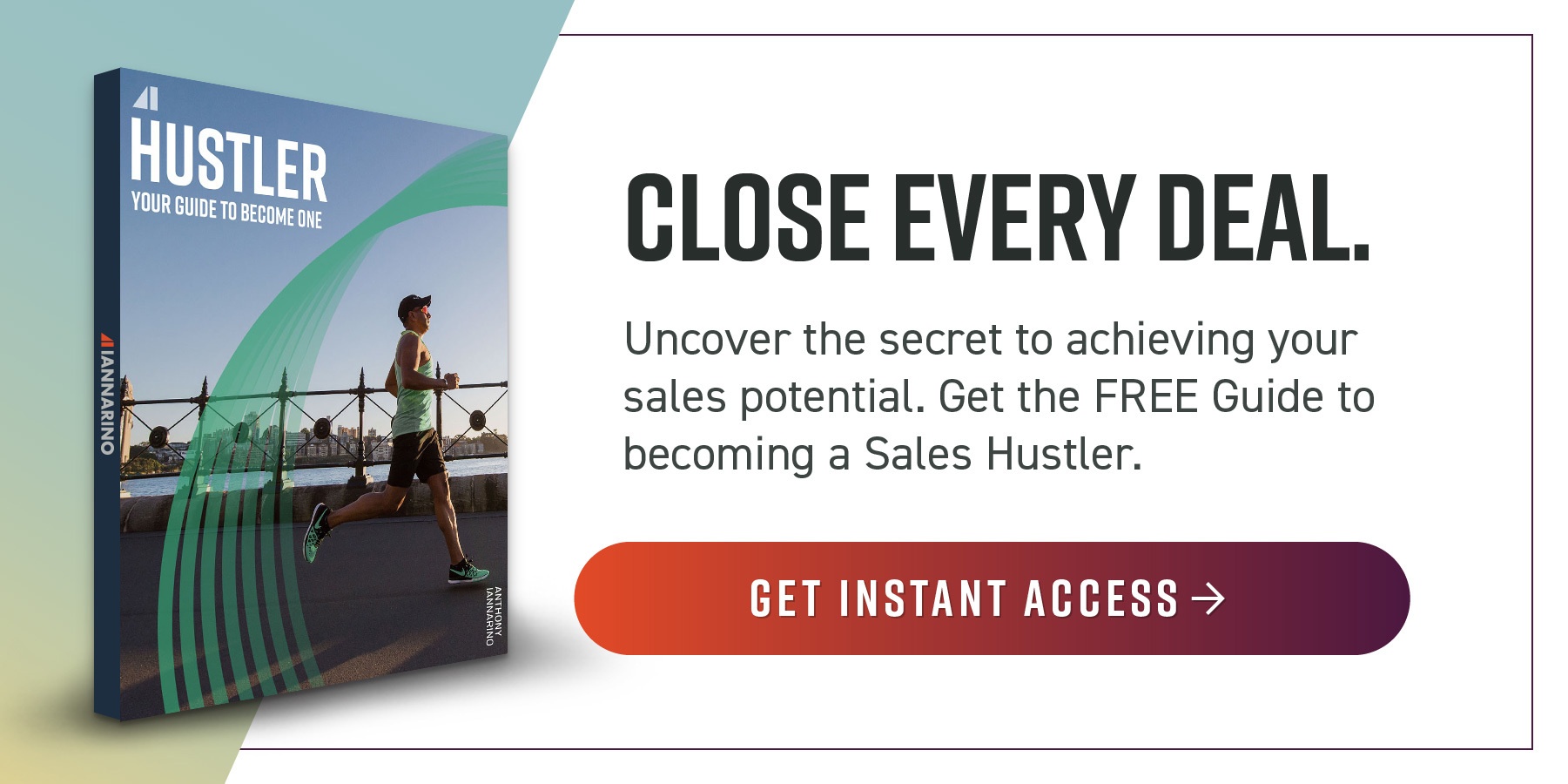Your prospective clients don't want to make a bad buying decision. The more important it is to get the decision right, the more your contacts are going to look for someone who is One-Up, a person with greater knowledge and experience that qualifies them as an authority and expert in their industry.
You will not be in the room when your competitor meets with your contact two days after you. You will not be able to compare yourself to them, but your contacts will be aware of the differences. The salesperson who believes their company and their "solution" are the predominant factors in the client's decision have a low chance of winning when competing against a salesperson who is One-Up. The expert has an extreme competitive advantage because their conversation is more valuable to their contacts because it enables a good decision while also providing confidence and certainty.
In Eat Their Lunch: Winning Customers Away from Your Conversation, one chapter suggests that you need to be a 52% subject matter expert when it comes to whatever it is that you sell. At the time, I noticed a number of salespeople needed to bring a subject matter expert to every discovery call because they were unable to handle the conversation alone. Were I to rewrite this chapter, I would insist the salesperson needs to be a 99% subject matter expert in their industry, leaving 1% to suggest the salesperson is humble enough to know there is still more to learn.
The Greater Need Theory
What follows can be a little upsetting to some. I will ask for your forgiveness in advance and know that I am not trying to hurt your feelings. Your company is excellent, and so is your competitor's. Your solution is the very best on Earth, and perhaps, the universe. Sadly, your competitor's solution is equally exceptional. Both you and your competitor are capable of selling the client something that will improve their results or provide them with what they need.
To be sure, your contacts are going to choose to buy something from someone. But deciding which company and which solution is not the client's greatest need from the sales conversation. While it's important to buy something that works, who to buy from is a decision that the client is going to measure based on the value the salesperson creates over a series of conversations. This comes from the salesperson’s insight, perspective, understanding, and certainty.
The client's greatest need is understanding why they have poor results, how to improve their outcomes, what factors to consider, what options might improve their results, and how to make the best decision, one that will ensure their success. Let's assume the way you score points with your prospective clients is by providing them counsel, advice, and recommendations, while having an attractive deskside manner.
The Upper Limit of Your Expertise
The upper limit of your expertise is also the upper limit of your success in sales. The more your know about the nature of the client's poor results, what they need to do to improve, what choices are available to them, and why one course of action is greater than another potential choice, the greater your success. The salesperson that is able to transfer their expertise to their contacts is providing what the client needs based on the Greater Need Theory.
The One-Down salesperson lacks the knowledge and experience they need to compete against an expert in their industry. This suggests that much of what passes for enablement isn't likely to prepare the salesperson to address the client's greater needs. Being able to position their company or their "solution" as being better than those of the competition will not provide an advantage in the sales conversation. It would be better for the salesperson to pursue the role of business advisor rather than a “solution” peddler.
To be a business advisor, a salesperson must spend time understanding what their clients need and developing the competencies and talk tracks to improve their client's results. This, in turn will improve the salesperson’s results.
The Long Arc of Sales
For a very long time, professional sales has been following a path that leads away from transactional approaches and toward a more consultative approach. The internet has been steadily chipping away at the transactional approach in which the salesperson shows up with a catalog and an order form. When you can buy a car from a vending machine, you start to recognize that the limits of the transactional approach are greater than you believed.
At the same time, the complex sale has become increasingly more complex, in part because the environment is complex. This manifests as uncertainty. Where there is complexity and uncertainty, decision-makers seek understanding. This change requires sales organizations and salespeople to evolve. Being truly consultative is different than what most people imagine.
Being One-Up, the main concept in Elite Sales Strategies, is important because it provides a path for salespeople to acquire the knowledge and experience to present themselves as industry experts who can fill gaps in their clients’ knowledge and experience. This positioning, and the ability to educate their contacts, provides One-Up salespeople with the skills they need in complex sales. Only One-Up salespeople have the expertise to provide their clients with sound counsel, good advice, and effective recommendations.












.jpg?width=768&height=994&name=salescall-planner-ebook-v3-1-cover%20(1).jpg)


